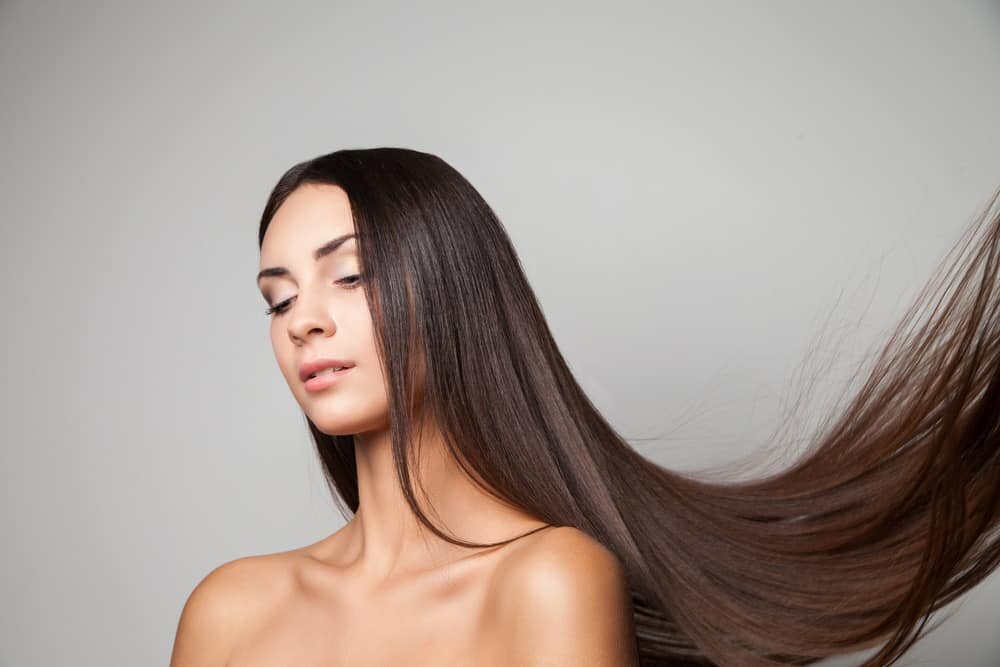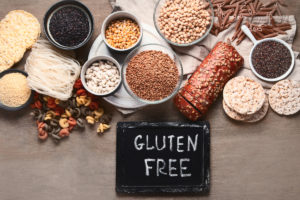Healthy and fuller hairs are desired by everyone. Hair is often linked with enhanced physical appearance and good health. This can be considered as true since it is necessary to maintain a healthy diet to promote healthy hair growth and to prevent hair fall. Although many other factors like hormones, age, and genetics can determine hair growth, however, diet plays a key role to ensure that the hair roots are supplied with necessary nutrients.

Below given are the top seven vitamins and nutrients that may promote hair growth:
Vitamin A
Vitamin A is also known as retinol. It is essential for cells as it helps them to grow. This is true for all cells including the cells that make hair follicles. Vitamin A is also necessary for the production of natural oil known as sebum that the skin glands make to prevent the scalp from drying out. Sebum is necessary for a moisturized and healthy scalp and helps the hair to grow. Although deficiency of vitamin A can lead to hair fall, intake in excess can also trigger hair fall. The advised amount of vitamin A per day is 800-700 micrograms (mcg) for males and a dose of 600 mcg for females. Foods rich in vitamin A or retinol are cheese, yogurt, milk, and fortified spreads. You can also get retinol from foods rich in beta-carotene as the body turn them into vitamin A. For example carrots, kale, sweet potatoes, red peppers, and apricots can be considered good sources of beta-carotene.
B complex vitamins
B vitamins are necessary for hair and overall health. Some studies suggest that deficiency of B vitamins can lead to hair fall. They play a crucial role in promoting hair growth as B vitamins are necessary for the production of red blood cells (RBC) and RBC contains oxygen that is supplied to the scalp and promotes hair growth. Necessary nutrients are also supplied to the scalp with the help of B vitamins.
Various B vitamins are vitamin B1 also known as thiamin, B2 (riboflavin), B3 (niacin), B5 (pantothenic acid), B6 (pyridoxine), B7 popularly known as biotin, B9 known as folate, and B12 or cobalamin. All the B vitamins are said to be water-soluble i.e. they can be carried to the body tissues but cannot be retained by the body, hence it is necessary to consume them daily.
Vitamin B7 or Biotin
It is the most popular B vitamin related to hair health. The deficiency of biotin is linked with hair fall. Biotin is also prescribed as a treatment to people suffering from hair fall. Studies suggest that biotin works best for people, who are deficient and it doesn’t need to be effective for healthy people. Vitamin B7 is known to improve keratin levels which can increase the follicle growth rate. Biotin can be consumed in a high dose also, as only the required amount is absorbed and the rest is excreted due to its water-soluble property. Some sources of vitamin B7 are almonds, walnuts, pecans, soybeans, and cauliflower.
Vitamin B9 or Folate
Vitamin B 9 is also known as folic acid which is known to boost the cell production process of the body. This can result in better hair growth, voluminous hair, and also reduces the chances of premature greying of hair. Folic acid is also necessary for the production of red blood cells (RBC) hence, it promotes the overall functioning of the body. It is advised to consume around 400 mcg of folic acid daily. Good sources of vitamin B9 are brussels sprouts, kale, broccoli, spinach, chickpeas, and cereals fortified with folic acid.
Vitamin C
Vitamin C is a necessary nutrient to ensure overall health. It can help with hair health as it can prevent premature greying of hair due to the presence of antioxidants. Vitamin C may protect you from oxidative stress which can affect hair health negatively. It is also necessary for proper absorption of nutrients which are essential for hair growth. It improves iron absorption which is necessary to promote hair growth. It is also necessary for building a protein known as collagen which helps in reducing hair fall, promotes hair growth, and improves overall hair health. Good sources of vitamin C include citrus fruits like oranges, lemons, limes. Other sources are broccoli, peppers, strawberries, and brussels sprouts. It is advised to consume around 65-70 mg of vitamin C daily for females and 80-90 mg for males.
Vitamin D
Vitamin D is essential for healthy hair and skin. It is said to promote growth and re-growth of hair as it is necessary for the generation of new hair follicles. Hence when you are unable to get vitamin D it may affect your hair health. Vitamin D deficiency is also related to a type of hair loss pattern known as alopecia areata. It was also seen that people who had vitamin D deficiency and suffered from other hair loss patterns experienced less hair fall after taking vitamin D supplements. Since not a lot of foods are rich in vitamin D exposing yourself to the sun’s rays can be a good idea. Some foods that contain vitamin D are cheese, fortified foods like soy milk, cereals, orange juice, and various dairy products. It is advised to take around 600 IU or 15-20 mcg of vitamin D daily.
Vitamin E
Vitamin E is said to have properties that can reduce oxidative stress as it is an antioxidant. This helps in maintaining hair health and prevents the aging of hair. It also prevents the breaking of hair and helps in maintaining existing growth. Due to the presence of antioxidants when vitamin E oil is applied topically it can promote hair elasticity. It can be applied to the scalp as it promotes blood circulation and balances sebum production which is necessary for a healthy scalp. The recommended amount of vitamin E to consume daily is 400-600 IU or 10-15 mcg. Foods rich in vitamin E are almonds, hazelnuts, soybean oil, spinach, and broccoli.


